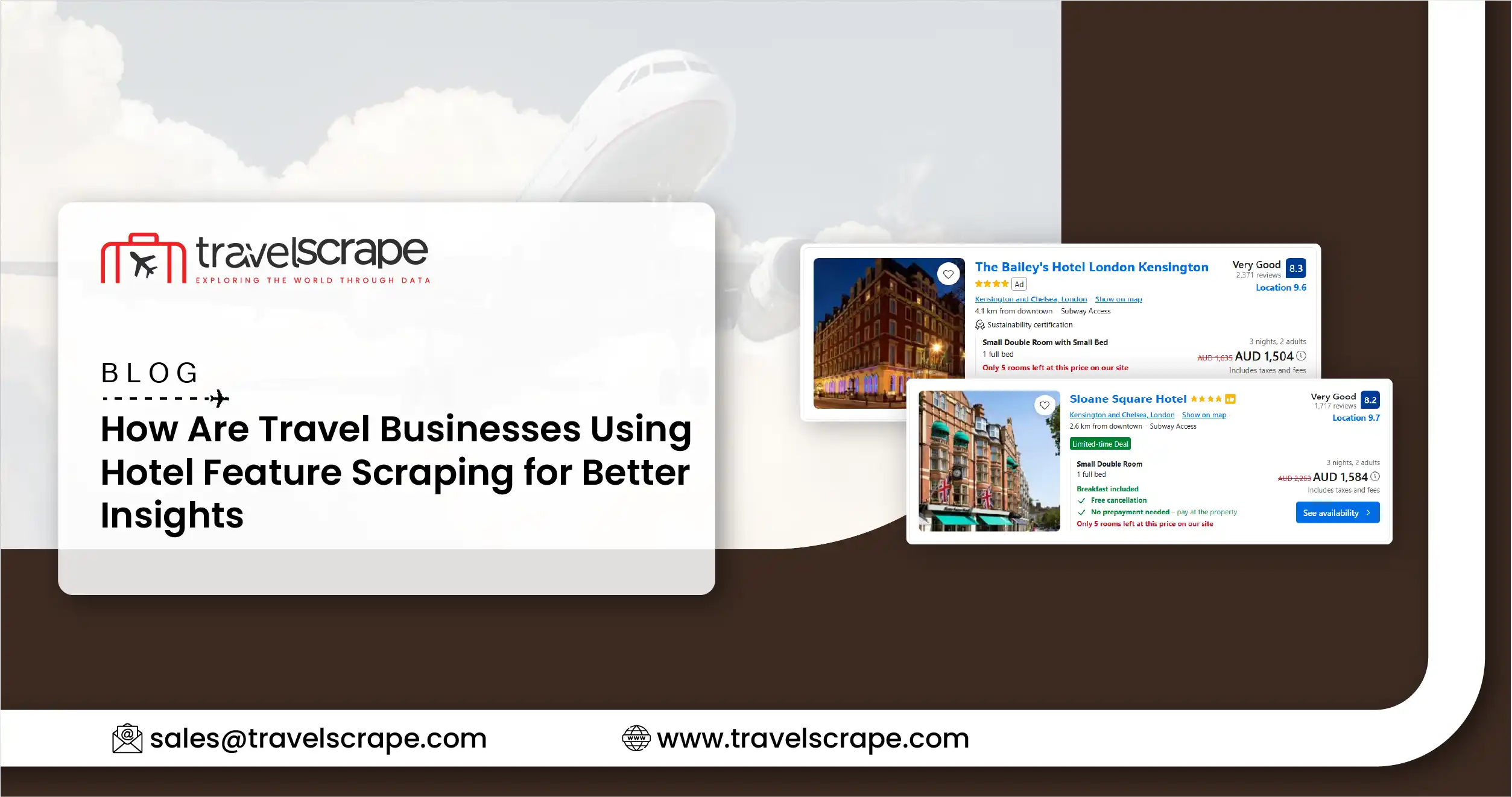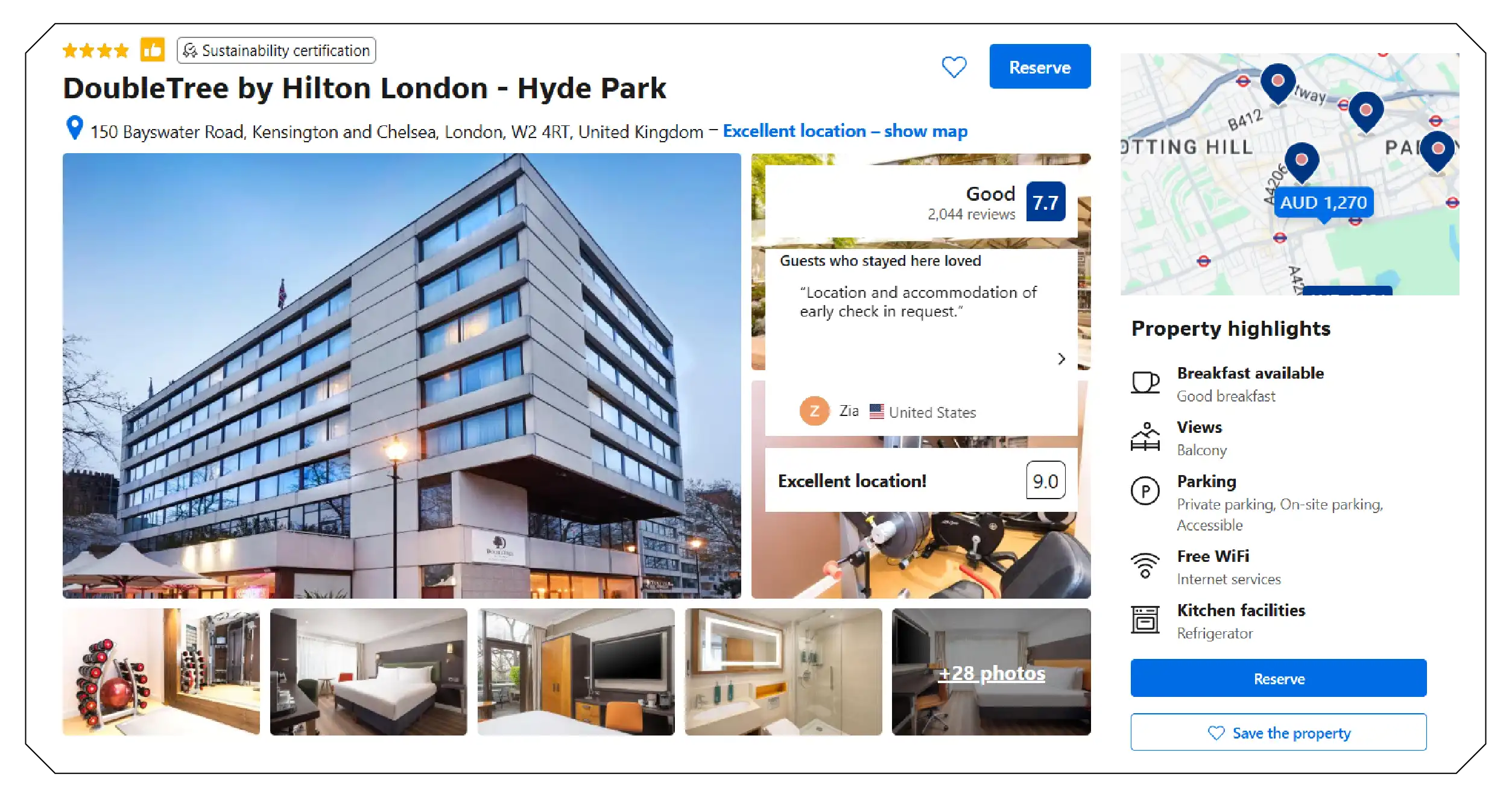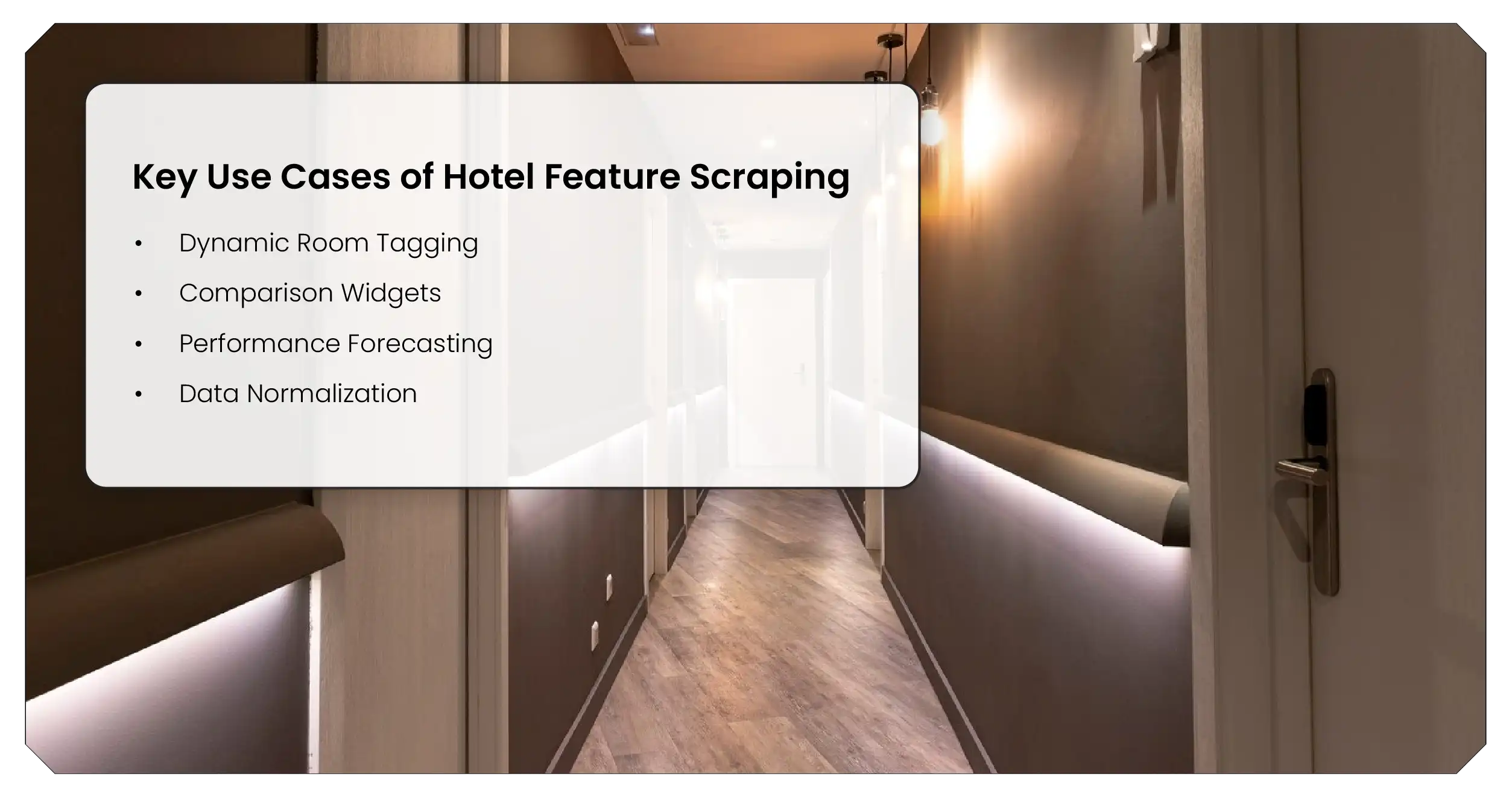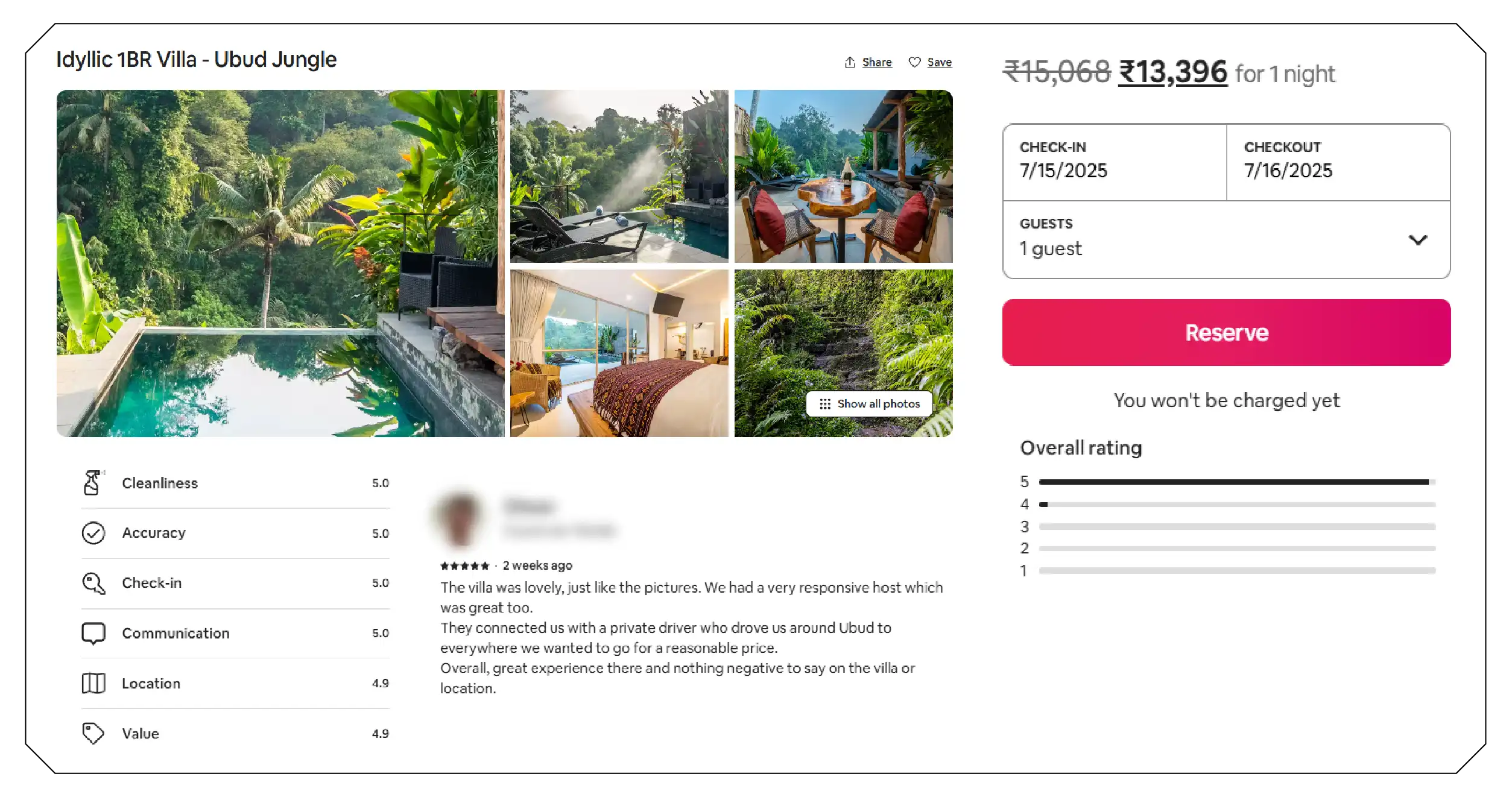How Are Travel Businesses Using Hotel Feature Scraping for Better Insights?

Introduction
The online travel and hospitality industry is fiercely competitive, with hotels and OTAs constantly seeking innovative ways to improve customer experience, optimize pricing, and differentiate their offerings. One of the most valuable strategies in this environment is hotel feature scraping, the process of collecting and analyzing hotel-specific features at scale across platforms. From amenities to room configurations, this data provides actionable insights for multiple stakeholders. A key component of this practice is amenities data extraction , which allows businesses to understand what competitors offer and how properties are positioned. Brands now use this scraped intelligence to compare hotel offerings, identify unique selling points, and refine their marketing strategies. Whether you're a hotelier or a travel tech startup, the ability to extract room-level attributes is vital for building smarter platforms and offering better guest experiences.
Reasons for Hotel Feature Data Scraping

In today's digital-first travel booking environment, customers rely heavily on hotel features when making booking decisions. Thus, collecting this data has become mission-critical. The reasons include:
- Understanding Competitive Positioning – Hotels must understand how their features compare to those of their competitors.
- Optimizing Guest Experience – By knowing what amenities guests prioritize, properties can enhance their offerings.
- Content Enrichment – Travel platforms utilize feature data to present more comprehensive listings to end users.
- Operational Benchmarking – Hotel quality insights help identify where a hotel falls short, such as missing popular amenities or outdated decor.
- Dynamic Marketing – Hotels and OTAs can personalize ads and campaigns based on extracted features.
Through tools that scrape spa, pool, and Wi-Fi data, companies gain a clearer picture of what travelers want and which amenities are trending in specific regions or property types.
How Hotel Feature Scraping Helps in Deeper Analysis?
Feature-level hotel data offers more than just visual appeal on a listing—it fuels analytical depth that transforms strategy and operations.
- Granular Segmentation: By analyzing hotel star rating data, businesses can categorize properties based on quality, pricing strategy, and target demographics.
- Inventory Optimization: Platforms can recommend changes based on which room types or amenities outperform others.
- Content Performance: Scraping reviews alongside features reveals what matters most to travelers.
- Geographical Insights: Hotel chains can identify regional differences in demand for specific amenities or services.
For instance, a luxury OTA might use hotel product intelligence to analyze how frequently 5-star properties offer services like spas, private pools, or concierge support, tailoring its recommendations accordingly.
Businesses Leveraging This Data
A wide range of businesses use hotel feature scraping to improve performance:
- Online Travel Agencies (OTAs): To create feature-rich listings, enhance comparisons, and boost conversions.
- Hotel Chains: For competitive benchmarking and internal planning.
- Price Aggregators: To align room pricing with value offerings.
- AI-Powered Travel Apps: To power recommendation engines and personalized search results.
- Market Research Firms: To study hotel metadata scraping for trend analysis and forecasting.
Scraping tools, such as a room configuration scraper, allow all these stakeholders to dissect layouts, bed options, accessibility features, and more—automatically and at scale.
Key Use Cases of Hotel Feature Scraping

Hotel feature scraping isn't just about extracting raw data; it's about applying it to drive results. Key use cases include:
- Dynamic Room Tagging: Automate room labeling for luxury, family, business, or couples based on scraped attributes.
- Comparison Widgets: Help users directly compare hotel offerings across amenities, pricing, and guest ratings.
- Performance Forecasting: Predict how feature changes (such as adding breakfast) might impact occupancy.
- Data Normalization: Harmonize content from multiple OTAs to ensure consistency in listings.
Many travel portals also rely on breakfast & parking scraping to filter listings or build user-centric features such as "Only show hotels with free parking."
Role of Scraped Data in Enhancing Business
Scraped hotel data delivers tangible benefits to both operational and strategic layers of a business:
- Increased Conversions: Richer listings with detailed feature information enhance trust and increase click-through rates.
- Competitive Pricing: With access to Hotel Data Scraping , pricing models can account for amenity inclusion and exclusivity.
- Smart Filtering: Platforms use Hotel Price & Amenities data to empower users with advanced filters and preferences.
- Travel Planning Tools: By layering hotel feature data with itineraries, platforms offer tailored travel experiences.
Moreover, APIs such as a Travel Scraping API allow for seamless integration of updated hotel data into booking engines, dashboards, and CRM systems.
Leveraging Travel Web Scraping Service for Feature Extraction

A reliable Travel Web Scraping Service is critical to extracting high-quality hotel feature data. These services automate the collection of:
- Descriptive texts (room views, bedding types, decor)
- Quantitative fields (star rating, number of bathrooms)
- Visual cues (pool images, spa visuals)
- Booking rules (cancellation, check-in times)
Such comprehensive extraction helps create a unified and intelligent view of what hotels are offering globally. It feeds directly into Hotel Price Intelligence, where pricing is matched against feature availability.
How Travel Data Scraping Trends Are Shaping Hotel Analysis?
Modern Travel Data Scraping Trends indicate a shift towards real-time, visual, and API-driven data pipelines. These trends emphasize:
- Frequency: Near real-time scraping for constantly updated listings.
- Depth: Going beyond prices to include content, services, and guest policies.
- Automation: Tools that schedule scraping and notify users of key changes.
- AI Integration: NLP and machine learning used to classify and rank hotel features automatically.
Additionally, growing interest in hotel property filter scrapingis reshaping how consumers search, with the use of more personalized and micro-level filters, such as "Pet-Friendly," "Beach View," or "Late Checkout."
Hotel Feature Data for Personalization and Customer Experience

Hotels and platforms are now focusing on personalization powered by scraped data. Feature-based personalization allows:
- Suggesting properties based on past preferences (e.g., free breakfast, gym access).
- Creating curated collections like "Boutique Hotels with Rooftop Bars" or "Eco-Friendly Accommodations."
- Optimizing booking flows based on interest triggers (e.g., promoting spa packages if the user filters for "Wellness").
Such precision-driven personalization is only possible when you have structured hotel data collected through sophisticated scraping infrastructure.
Visual and Metadata Scraping for Hotel Branding
Apart from textual features, travel platforms are beginning to extract visual hotel content to analyze brand consistency, user engagement, and room appeal. Similarly, hotel metadata scraping plays a key role in evaluating:
- Hotel brand voice and messaging
- Listing quality and completeness
- Tagline relevance and accuracy
- SEO keyword usage
OTA feature analysis helps both the OTA and the hotel to position listings more effectively and improve their ranking across search engines and in-app search features.
How Travel Scrape Can Help You?
- Precision-Focused Data Extraction: We focus on capturing micro-level travel data—such as room-level configurations, amenity availability, and seasonal offers—helping businesses uncover hidden patterns and make smarter decisions.
- Enabling Competitive Differentiation: Our scraping tools help travel platforms identify gaps in competitor offerings, refine their positioning, and create unique selling points to stand out in crowded markets.
- Boosting Personalization Engines: With enriched data feeds, we fuel AI-based recommendation engines that tailor travel options based on user preferences, behaviors, and real-time market dynamics.
- Enhancing Feature-Based Filtering: Our data enables OTAs to offer powerful filters, such as "Free Airport Shuttle" or "Pet-Friendly Hotels," thereby elevating the user experience and boosting conversion rates.
- Driving Data-Led Growth Strategies: Clients use our insights to enter new markets, localize travel content, and execute geo-targeted campaigns—transforming scraped data into real business growth.
Conclusion
Hotel feature scraping is revolutionizing how travel businesses operate, compete, and connect with travelers. By combining structured data extraction with intelligent analysis, companies can now create more relevant, customized, and appealing offerings for their users. As the market evolves, businesses that leverage hotel comparison APIs will be the ones that outperform in both user satisfaction and revenue growth. With tools that extract visual hotel content, companies can now transform every detail into actionable insight, enriching not just listings but the entire travel experience.
Ready to elevate your travel business with cutting-edge data insights? Get in touch with Travel Scrape today to explore how our end-to-end data solutions can uncover new revenue streams, enhance your offerings, and strengthen your competitive edge in the travel market.